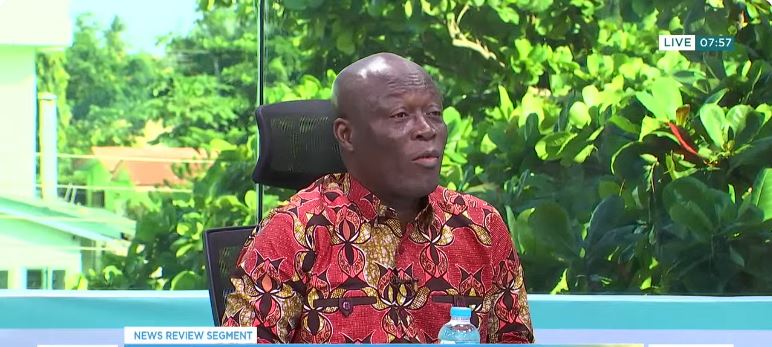The National Coordinator of the District Road Improvement Programme (DRIP), Nii Lantey Vanderpuye, has sounded a strong warning that Ghana risks sliding back into nationwide power outages popularly known as dumsor if citizens reject the newly introduced GHC1 fuel levy.
Speaking on Breakfast Daily on Channel One TV on Thursday, June 5, he stressed that while many Ghanaians are currently celebrating a drop in fuel prices, the future of Ghana’s energy security depends on whether citizens are willing to contribute to sustaining the sector through this levy.
According to Vanderpuye, the energy sector is under serious financial strain, and without a stable source of funding, power producers may struggle to maintain supply, emphasising that the levy is not a punishment, but a proactive solution designed to protect Ghanaians from the harsh economic and social consequences of blackouts.
“In this period where we are enjoying some joy from the fact that the price of fuel has slumped from 16 to under 12 cedis. This is the time when we are asking Ghanaians to make some sacrifices, such as a cedi, to keep the power on.
“If we don’t, and we say let us continue with the merry making, let’s continue enjoying the benefit of the prudent economic measures that have brought the fuel down, We don’t prepare for tomorrow as the ant does; what will happen is that in the next few days, amid our enjoyment, we will be hit by the reality of dumsor,” he said.
His caution follows the passage of the Energy Sector Levy (Amendment) Bill, 2025 by Parliament. The bill introduces a GHS1 increase per litre of fuel, a move projected to generate GHS5.7 billion annually. These funds are earmarked to settle mounting debts in the energy sector and ensure a consistent power supply across the country.
Finance Minister Dr. Cassiel Ato Forson revealed that Ghana’s energy sector currently faces a debt burden of $3.1 billion, with an estimated $3.7 billion required to fully clear all arrears. Additionally, the government needs $1.2 billion to procure fuel for thermal power generation in the year 2025 alone.
Dr. Forson described the levy as a lifeline for the country’s electricity infrastructure, pointing out that energy producers depend on timely payments to operate.
